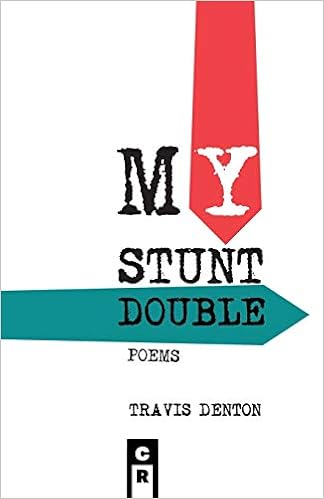The Gopher King is a ribald fantasy wrapped up in a psychological drama. As such, it can be appreciated at several levels. How much of Stan’s delusions do readers take literally? It is hard to say. But, in the words of the gopher king himself, “If you want to have a headache about the meaning of things, then you have to provide your own aspirin.”
A review of What a Wonderful World This Could Be by Lee Zacharias
 Zacharias skilfully achieves a balance between Alex’s personal journey and the historical events of the 1960s and ‘70s by presenting events from Alex’s unsophisticated perspective. Alex loves Ted Neal, but it is her photography that gives her an identity and a sense of agency. As she tells her students many years later: “You are the subject of your photographs. You act upon the object.”
Zacharias skilfully achieves a balance between Alex’s personal journey and the historical events of the 1960s and ‘70s by presenting events from Alex’s unsophisticated perspective. Alex loves Ted Neal, but it is her photography that gives her an identity and a sense of agency. As she tells her students many years later: “You are the subject of your photographs. You act upon the object.”
A review of Third Eye Rising by Murzban F. Shroff
 Seamlessly, these stories jigsaw together to show the startling offshoots of the traditions of India: the greater freedom of husbands than wives; the camaraderie of male drinking and its hazardous spill into families; the ways wealth and poverty bedevil relationships; the unslakable appetites evoked by success; the homely places where love thrives.
Seamlessly, these stories jigsaw together to show the startling offshoots of the traditions of India: the greater freedom of husbands than wives; the camaraderie of male drinking and its hazardous spill into families; the ways wealth and poverty bedevil relationships; the unslakable appetites evoked by success; the homely places where love thrives.
An interview with T.I. Lowe
 The author of Under the Magnolias talks about her new book and why it is different from her other romance novels, the emotions she felt while writing, her characters, setting, themes, her own personal experiences and inspiration, and lots more.
The author of Under the Magnolias talks about her new book and why it is different from her other romance novels, the emotions she felt while writing, her characters, setting, themes, her own personal experiences and inspiration, and lots more.
A review of Red Hands by Colin Sargent
 The dangers Ceausescu faces become all the more convincing in Sargent’s depictions of their interviews in which information leaks out bit by painstaking bit. In contrast, she comes across in the rest of the story as a confident and principled woman. The novel focuses on the actions she takes to protect herself, her son, and fellow citizens.
The dangers Ceausescu faces become all the more convincing in Sargent’s depictions of their interviews in which information leaks out bit by painstaking bit. In contrast, she comes across in the rest of the story as a confident and principled woman. The novel focuses on the actions she takes to protect herself, her son, and fellow citizens.
A Review of Beyond the Moon’s White Claw by Patty Dickson Pieczka
 Perhaps what is most heartrending is the poem is cast in the present simple conditional mood until the last sentence throws it into the past, which cannot be changed. The speaker’s helplessness before the pain of the PTSD of her ex-husband is compounded and yet inevitably accepted by that painful turn. In the collection, the various symbols from here on begin reversing and resolving.
Perhaps what is most heartrending is the poem is cast in the present simple conditional mood until the last sentence throws it into the past, which cannot be changed. The speaker’s helplessness before the pain of the PTSD of her ex-husband is compounded and yet inevitably accepted by that painful turn. In the collection, the various symbols from here on begin reversing and resolving.
A review of Airplane Baby Banana Blanket by Benjamin Dodds
 From the first poem, in this compelling book, the reader will experience a variety of emotions as well as thoughts questioning the ethics of the experiment. In narrative poetry form, with creative talent and imagination, the author recount events in in the life of Lucy. His words flow with musicality and stories are fascinating.
From the first poem, in this compelling book, the reader will experience a variety of emotions as well as thoughts questioning the ethics of the experiment. In narrative poetry form, with creative talent and imagination, the author recount events in in the life of Lucy. His words flow with musicality and stories are fascinating.
An interview with Melanie Dobson
 The author of The Curator’s Daughter talks about her new book and what inspired the storyline and characters, how she connected her two main characters, what makes the book unique compared to other books in the WWII genre, some of the surprising things she found in her research, her favourite and most difficult characters, her new work-in-progress, and lots more.
The author of The Curator’s Daughter talks about her new book and what inspired the storyline and characters, how she connected her two main characters, what makes the book unique compared to other books in the WWII genre, some of the surprising things she found in her research, her favourite and most difficult characters, her new work-in-progress, and lots more.
A review of Here Lies a Father by McKenzie Cassidy
 Secrets and lies permeate this entire story. “Mom had probably known most of his secrets just being married to him for so long, and he had slowly been filling Catherine’s ears with tidbits, I knew close to nothing.” The author of Here Lies a Father, McKenzie Cassidy, might very well been talking about the process of constructing his first novel when he reveals Ian’s state of mind as well as the main thematic elements concerning all of the lies he has heard his whole life. “The truth didn’t matter as much as the way a story made you feel…”
Secrets and lies permeate this entire story. “Mom had probably known most of his secrets just being married to him for so long, and he had slowly been filling Catherine’s ears with tidbits, I knew close to nothing.” The author of Here Lies a Father, McKenzie Cassidy, might very well been talking about the process of constructing his first novel when he reveals Ian’s state of mind as well as the main thematic elements concerning all of the lies he has heard his whole life. “The truth didn’t matter as much as the way a story made you feel…”
A review of My Stunt Double by Travis Denton
 Mourning vies with exultation at every crisp turn of phrase and every crunchy, unexpected line break. Some of that mourning is for the earth, for its creatures, for human folly and ignorance, for the apprehended apocalyptic end of days. Mourning is sometimes captured in references to popular music hits — Tom Petty, Bruce Springsteen, Johnny Cash always blaring out of cars of boys, and fathers who don’t know what to do with, without or about the boys — and sometimes in the symphony of stars, skies, space and otherworldliness.
Mourning vies with exultation at every crisp turn of phrase and every crunchy, unexpected line break. Some of that mourning is for the earth, for its creatures, for human folly and ignorance, for the apprehended apocalyptic end of days. Mourning is sometimes captured in references to popular music hits — Tom Petty, Bruce Springsteen, Johnny Cash always blaring out of cars of boys, and fathers who don’t know what to do with, without or about the boys — and sometimes in the symphony of stars, skies, space and otherworldliness.